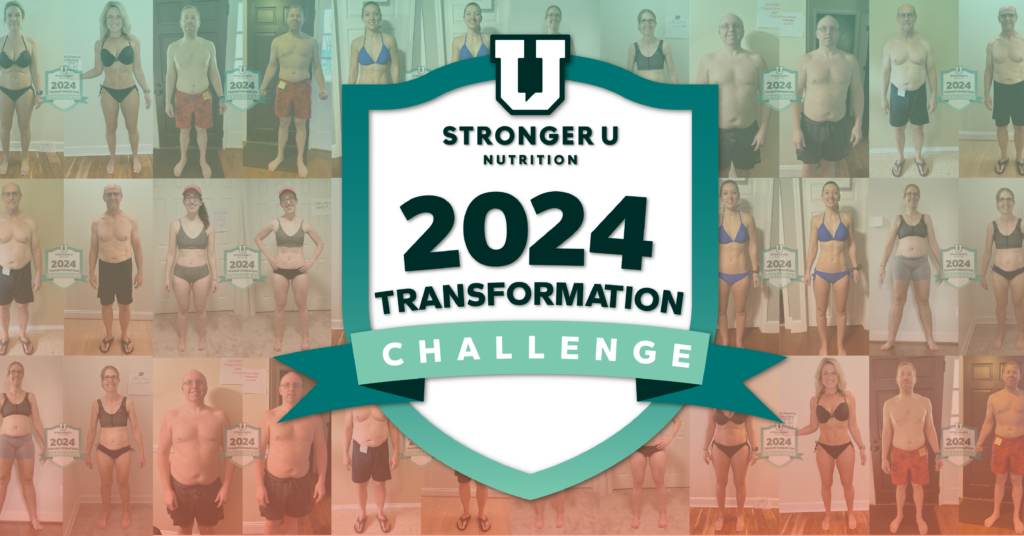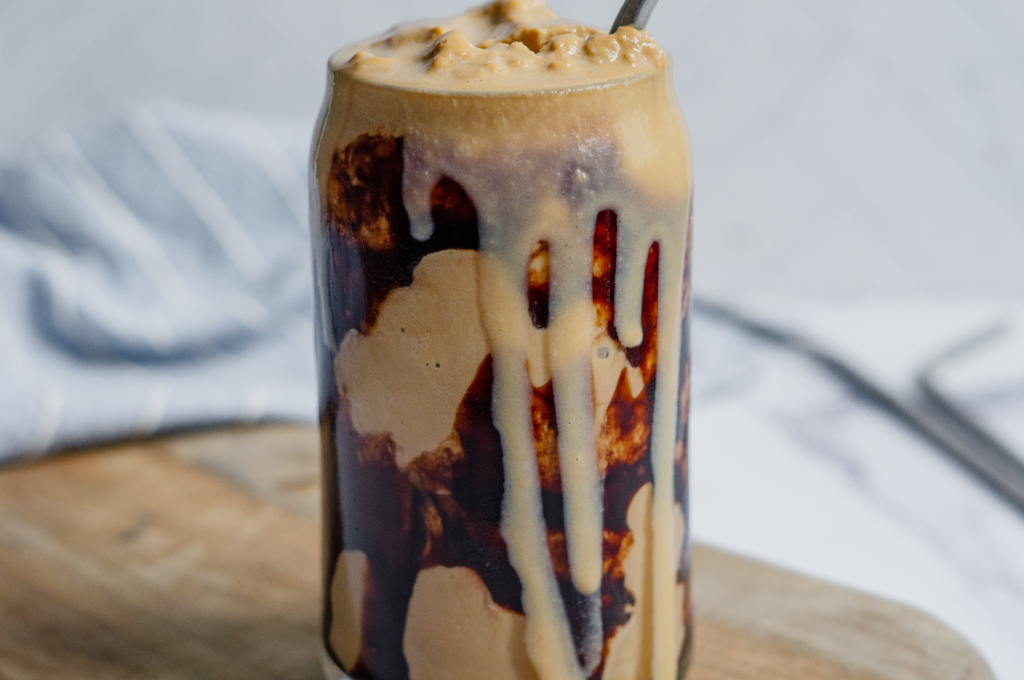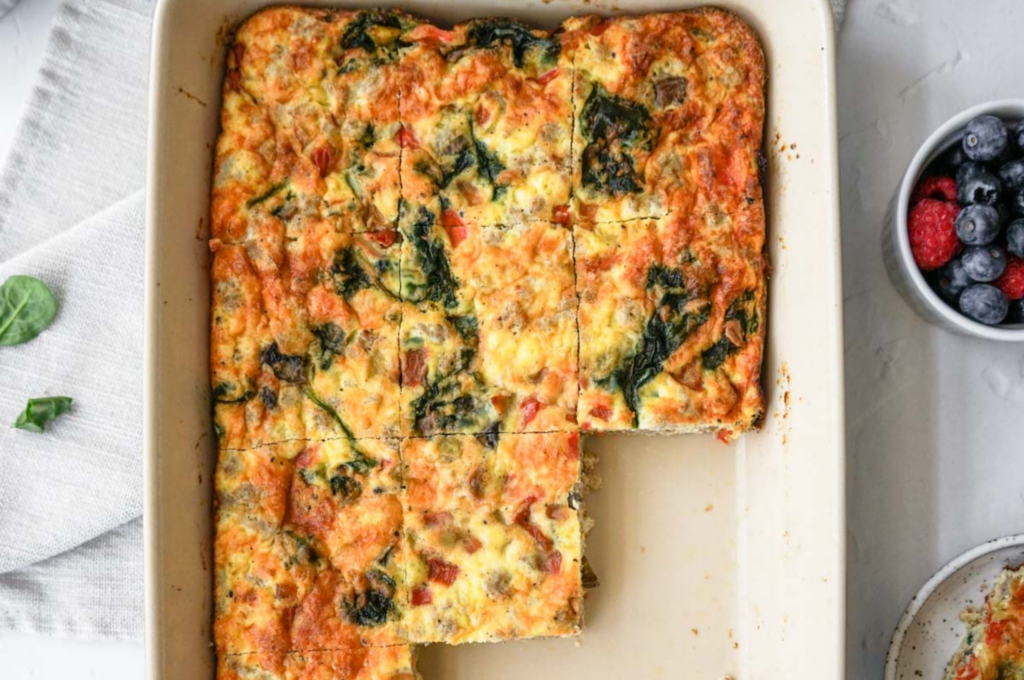At Stronger U one of the things that we’ve been really cognizant of is the fact that as we grow, we actually feel that it allows us to offer a better service than we could when we were a smaller company. I know that seems like a really counterintuitive way to think about things, but I think I have the perfect example to show you exactly what I mean.
Something that the Stronger U coaching staff has started doing, thanks to the work of Dr. Jessica Bachman, is holding a monthly research journal club. A monthly meeting where, as a staff, we voluntarily sign up to all talk about a topic, and go over a specific piece of research related to that topic.
The whole point being it’s true iron-sharpens-iron type of situation. It’s a chance for Dr. Jess to fall back into something that is entirely natural for her, in teaching. And it’s a chance for us as a staff to go really in depth on a specific topic each and every month, and have our journey into that topic be guided by true experts, like Dr. Jess.
So both in an effort to keep all of you up to date with the things that we’re learning each month and put together an in-depth blog post on the topic that we’ve gone over, I’ll be posting a review of our journal club each and every month on the blog.
What was the topic we learned about?
This month, the Stronger U Journal Club talked about metabolic adaptations and diet breaks. You may remember from a few weeks back I wrote an article that went into the idea behind a slow metabolism, and whether or not that was something that you were actually having to deal with. The very reason we’d dig into a research study is intimately tied to some of the things that I talked about in that blog post.
In quick summary, there are a few things that happen as someone loses weight. Their metabolic rate downregulates, both as a result of having a smaller body AND eating fewer calories. Along with that, many of their metabolic and sex hormones like T3, Leptin, and Testosterone all drop.
Those are all metabolic adaptations that take place as someone diets, and many times it’s those metabolic adaptations that can play a big part in the general fatigue, exhaustion, and dietary boredom that people feel during a diet. Especially during the end of a diet. All of those metabolic adaptations can be summed up nicely using the term: Resting Energy Expenditure (REE), or the number of calories you’re burning at rest.
When your metabolic rate has dropped and those hormones have downregulated, your REE is bound to be lower than when your metabolic rate is higher and those hormones haven’t downregulated.
Now, it’s important to remember that all of these things are totally normal. We expect them to happen when someone has been dieting. It’s why at Stronger U you hear us talk about things like cuts and maintenance so often. Because of these adaptations, we know that people can’t diet forever.
But see, those metabolic adaptations don’t just stop when someone moves into maintenance. In fact, there has been research that shows the metabolic adaptations that take place during weight loss, like a slower metabolic rate and down-regulating metabolic hormones can persist up to a year after someone has ended their diet. In practice and recently in research, the use of planned, purposeful diet breaks during a long-term weight loss program may help reduce the magnitude of the effect of these metabolic adaptations.
What was the study we went over?
Each and every month we’re really going to be talking about a few different pieces of research, but we’ll be doing a deeper dive into one specific piece of research. This month, that piece of research is the MATADOR study, which was published earlier this year. MATADOR is an acronym for: “Minimizing adaptive thermogenesis and deactivating obesity rebound.” Yeah, it’s a mouthful.
What were the things that went on in this study?
The authors of this study were looking to see if planned periods of energy balance (read: maintenance) could lead to reduced metabolic adaptations to weight loss, increase weight loss, AND increase long-term sustainability. The way they were going about this was planning two weeks of eating at maintenance between two weeks of energy restriction. Which means the people doing this part were seriously eating at a deficit for 2 weeks, at maintenance for 2 weeks, and alternating back and forth between the two.
Who took part in this study?
51 individuals, all obese and sedentary males, ages 25-54.
These two groups were randomly divided up into either:
- The group who would continuously diet for 28 full weeks (4 weeks at baseline, 16 weeks cutting, 8 weeks post weight loss, and a 6-month follow-up to check-in on weight loss.)
- The diet break group who would diet for 42 weeks (4 weeks at baseline, 16 weeks cutting interspersed with 14 weeks at maintenance, 8 weeks post weight loss, and a 6-month follow-up to check-in on weight loss.)
Both groups:
- Ate at a 33% calorie deficit during their 16 week cut.
- Had the follow macronutrient breakdown:
- 50-60% carbohydrate
- 15-25% protein
- 25-30% fat
- Were provided with all main meals + 2 snacks
- Completed a daily food diary
How did they gauge progress?
- Bodyweight (via scale)
- Body composition (via the BodPod)
- Resting energy expenditure (using a ventilated hood system)
What happened?
- The continuous group:
Was assigned to cut nonstop for 16 weeks, their average weight loss worked out to be 17lbs.
- The intermittent group:
Was the group of people who alternated between cutting and maintenance every two weeks. Over the same 16 weeks of cutting, but in 30 weeks total (because of bouncing back and forth), this group lost an average of 30lbs.
Additionally, the authors of the study found that there was no difference in REE between the two groups, equating to about a 6% drop in both groups. However, the important thing to remember about that is the intermittent group lost significantly more weight. Which means that the group who intermittently took breaks from dieting actually had a better metabolic profile.
But that’s not all! Remember, there was also a 6 month follow-up for the authors of the study to check-in with the participants about their weight loss. At this point, only about half of the study volunteers took part in the follow-up, but what the researchers noticed was that the Intermittent group did a significantly better job at keeping the weight off in the 6 months following the conclusion of the study.
Now, it is important to remember that because only half the participants showed up, there’s a strong chance those people who showed up are more likely to be people who were excited to keep working at keeping the weight off, leading to more self-selecting of positive results. But still fascinating, nonetheless.
Even that point being said, those are all strong takeaways, and more than that, they add credence to the thought that if someone has a ways to go in their weight loss journey, planning intermittent diet breaks can not only be good from an adherence perspective but could also be seriously beneficial from a metabolic perspective.
Why does that matter for you?
Good question, because truthfully, it might not matter for you! For one, this was just a single research study in a small number of obese males. So while the results are impressive, it’s hard to draw any definite conclusions from one piece of research, especially if you don’t fall within the study’s demographic.
Second, here’s the thing about diet breaks: not everyone needs them. In fact, a general rule of thumb that we use is that if you’re dieting for about 3 months or a little less, you probably don’t need them.
The thing with diet breaks is that they’re typically far more applicable for people who have a significant amount of weight to lose. Individuals who could realistically expect to be dieting for 40-50 weeks at a time in order to hit their weight loss goals, even if they lost weight at the “Goldilocks number” of 1-2lbs per week.
In that kind of situation, it makes a lot of sense to have some planned periods where we spend 1-2 weeks at maintenance every 3-4 months, which gives us a time to make sure that we try to bring metabolic health markers up to normal.
Of course, all of that being said, I’m sure there are a number of you nodding along right now who are probably thinking, “You know what? A diet break sounds like exactly what I need.” and you very well might be right. But what I can tell you is that when talking about the actual need for a diet break, we’re also talking about people who have diligently been eating at a calorie deficit each and every day, for months on end.
If you’re someone who has had a “weekend off”, or gone on vacation here recently, had a cheat meal, or just had a few unplanned days then there’s a strong chance there isn’t any physiological need for a diet break in order to see more results. There’s probably just a need for more consistency.
What about the mental side of things?
Now, an important thing to note is that up to this point, I’ve only talked about diet breaks from a physiological perspective and using them to help take care of you from a metabolic health perspective.
We can all say that a big part of the key to success in dieting is winning the mental game. We can also all say that the idea of facing down the barrel of 50 weeks straight of dieting can be just a little bit daunting. Heck, 20 weeks of that can be daunting. It gets even more so when life throws you a curveball or two in the middle of your diet, as life is wont to do.
So while it may not be necessary from a physiological perspective, if you’re someone who is dealing with an intense amount of stress, a lot of travel, or a number of obligations that take away from your time, a short-term diet break might be a good idea. It’s just important to remember it’s a good idea for psychological and prioritizing reasons vs. physiological ones.









